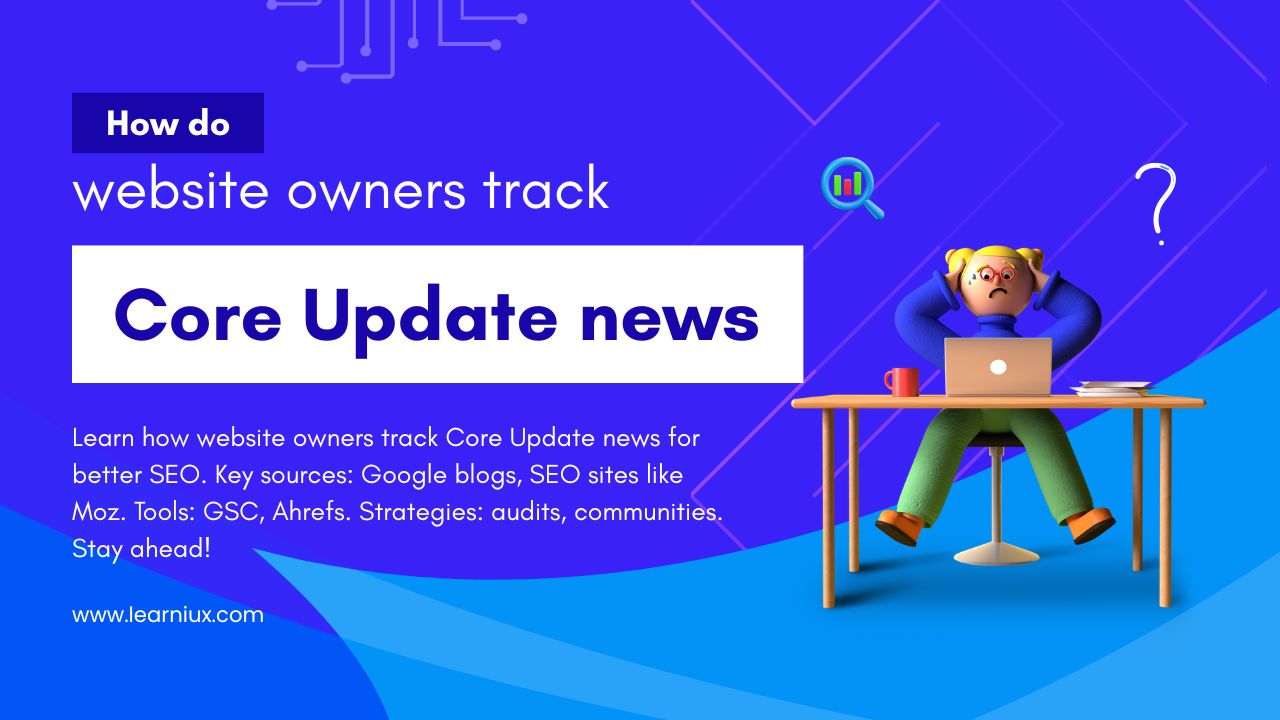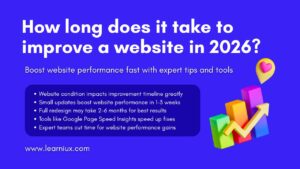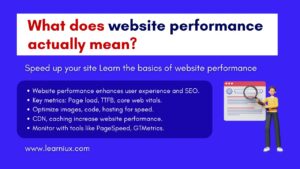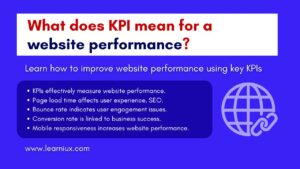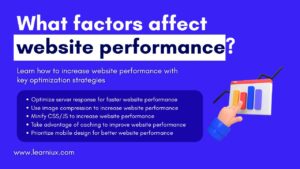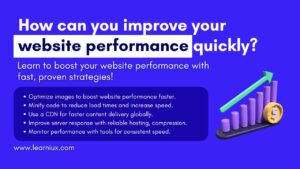Introduction to Core Update News
In the dynamic world of search engine optimization (SEO), staying informed about core update news is a cornerstone for website owners who aim to maintain or grow their online presence. Search engines like Google periodically release core updates, which are significant changes to their algorithms that can reshape how websites are ranked. These updates impact everything from organic traffic to user engagement, making it important for website owners to carefully track core update news. By understanding and responding to these changes, website owners can safeguard their SEO efforts and ensure their sites remain competitive in the search engine results pages (SERPs).

Core update news refers to the announcements, insights, and analysis surrounding these algorithm changes. For website owners, staying up to date means not just reacting to the changes, but also proactively preparing for them. Whether you manage a blog, e-commerce platform, or corporate website, tracking core update news allows you to align your SEO strategies with the latest search engine preferences, ensuring that your site continues to attract and retain visitors.
Why it’s important to keep track of core update news
The importance of keeping track of core update news when it comes to SEO cannot be overstated. These updates often introduce new ranking factors or adjust the weight of existing factors such as content quality, user experience, or technical performance. Not keeping up with the information can lead to a sudden drop in rankings, a loss of organic traffic, or even penalties for not following updated guidelines. For website owners, core update news acts as a roadmap for navigating the ever-evolving SEO landscape.
Impact on SEO Strategies
Core update news has a direct impact on SEO strategies, highlighting changes in what search engines prioritize. For example, a core update may emphasize mobile usability, which may require website owners to optimize their sites for mobile devices to maintain strong SEO performance. Similarly, updates may focus on content relevance, which may prompt website owners to improve their keyword strategies or increase the depth of content. By tracking core update news, website owners can adapt their SEO strategies to these changes, ensuring that their sites remain visible and competitive.
Additionally, core update news often provides guidance on avoiding common SEO pitfalls. For example, updates may penalize thin content or manipulative link-building practices, prompting website owners to audit their sites for compliance. This proactive approach to SEO helps reduce risk and leads to long-term success.
Benefits for Website Performance
Beyond SEO, tracking core update news provides tangible benefits for overall website performance. Updates often emphasize user-centric elements, such as page load speed, intuitive navigation, and high-quality content. By adapting to these changes, website owners can enhance the user experience, which can lead to higher engagement, lower bounce rates, and improved conversion rates. For e-commerce sites, this can mean increased sales, while for content-driven sites, it can mean more time spent on pages and higher ad revenue.
Additionally, core update news can reveal opportunities to outperform competitors. By implementing changes based on update insights quickly, website owners can gain an edge in the SERPs, capturing traffic that competitors might otherwise lose due to slower adaptation.
Trusted Sources for Core Update News
To effectively track core update news, website owners need to rely on reliable and timely sources. The SEO industry is full of misinformation, so choosing an authoritative channel is essential for accurate insights.
Official Search Engine Blogs
The most reliable source for core update news is the official search engine blog, such as the Google Search Central blog. These platforms provide live announcements about major updates, including their goals, rollout timelines, and expected outcomes. For example, Google often shares high-level guidance on how website owners can prepare for updates, such as focusing on high-quality content or improving technical SEO. Subscribing to these blogs or their RSS feeds ensures that website owners receive core update news as soon as it is published.
Bing and other search engines also maintain blogs that occasionally announce updates, although Google’s dominance makes their announcements especially important for SEO professionals. Checking these sources regularly is a fundamental step in staying informed.
Industry-Leading SEO Websites
Beyond official channels, industry-leading SEO websites offer in-depth analysis of core update news. Platforms like Search Engine Journal, Moz, Search Engine Land, and Ahrefs Blog offer expert commentary, case studies, and practical advice on how updates impact SEO strategies. These sites often break down complex updates into actionable insights, making it easier for website owners to understand and implement the changes.
Subscribing to newsletters from these platforms is an effective way to get curated core update news delivered directly to your inbox. Many of these websites also publish regular roundups of SEO trends, keeping website owners informed about broader industry changes, including core updates.
Social Media and Forums
Social media platforms like X are invaluable for real-time updates and discussions about Core Update news. SEO professionals, industry leaders, and search engine representatives often share insights, reactions, and tips about X as updates are released. Following hashtags like #SEO or #CoreUpdate can help website owners find relevant conversations and stay ahead of the curve.
SEO forums like WebmasterWorld, Reddit’s r/SEO, and specialized groups on LinkedIn also serve as rich sources of Core Update news. These communities encourage discussions where website owners share their experiences, such as traffic spikes or ranking changes after an update. Participating in these forums not only provides insight but also builds a network of peers who can offer support and advice.
Tools to Monitor Core Update News
In addition to following trusted sources, using SEO tools can simplify the process of tracking core update news and assessing its impact on a website. These tools provide data-driven insights, making it easier to detect and respond to algorithm changes.
Google Search Console
Google Search Console (GSC) is an essential tool for website owners focused on SEO. While it doesn’t directly announce core update news, GSC provides performance reports that show how updates affect site metrics, such as impressions, clicks, and average ranking. For example, a sudden drop in clicks after a core update could indicate that your site is no longer meeting the new ranking factors. By regularly monitoring GSC, website owners can correlate core update news with performance changes and take corrective action.
GSC also provides tools to diagnose technical SEO issues, such as crawl errors or mobile usability issues, which are often highlighted in core updates. Integrating GSC with Google Analytics provides a comprehensive view of how updates affect SEO and user behavior.
SEO Analytics Platforms
Advanced SEO platforms like Ahrefs, SEMrush, and Moz are powerful allies in tracking Core Update news. These tools offer features like algorithm update trackers, which notify users of confirmed or suspected updates based on industry data. For example, SEMrush’s Sensor Tool monitors SERP volatility, which helps website owners identify when a Core Update is impacting rankings.
These platforms also provide detailed reports on keyword performance, backlink profiles, and site health, which allows website owners to determine areas that have been impacted by Core Update news. By combining these insights with official announcements, website owners can develop targeted SEO strategies to address update-related challenges.
Custom Alerts for Core Update News
Setting up custom alerts is a proactive way to stay informed about core update news. For example, Google Alerts can be configured to notify website owners when terms like “Google Core Update,” “SEO Algorithm Change,” or “Core Update News” appear in news articles or blog posts. These alerts provide real-time updates, ensuring that website owners don’t miss out on important information.
Additionally, tools like Feedly allow website owners to create custom feeds by aggregating RSS feeds from trusted SEO sources. This centralized approach simplifies the process of tracking core update news across multiple platforms.
Strategies to Stay Ahead of Core Update News
Tracking core update news is only half the battle; website owners must also adopt strategies to stay ahead of algorithm changes. Proactive preparation ensures that sites remain resilient to updates and maintain strong SEO performance.
Regular Website Audits
Conducting regular SEO audits is an important strategy to stay prepared for core update news. Audits can help identify issues that could result in penalties due to updates, such as broken links, slow page speed, or low-quality content. Tools like Screaming Frog, SiteBulb, or Ahrefs’ Site Audit feature can crawl a website and highlight areas that need improvement.
For example, a core update can prioritize content relevance, which can prompt website owners to audit their content for outdated information or keyword misalignment. Technical SEO audits that focus on aspects like site architecture or schema markup are equally important, as updates often emphasize technical performance.
Participate in SEO Communities
Active participation in SEO communities provides a wealth of knowledge about core update news. Platforms like Reddit, LinkedIn, and X host vibrant communities where SEO professionals share real-time observations about updates. For example, a thread on Reddit’s r/SEO might discuss how the recent core update affected e-commerce sites, providing insights that website owners can apply to their own strategies.
Participating in these communities also increases collaboration. Website owners can ask questions, share their experiences, and learn from others who have successfully navigated the core update news. Joining a webinar or virtual SEO conference further enhances knowledge and keeps owners up to date on emerging trends.
Continuous Learning and Adapting
SEO is an ever-evolving field, and core update news often introduces new best practices. Website owners must commit to continuous learning to stay competitive. Online courses on platforms like Coursera, Udemy, or Moz Academy offer a structured learning path to mastering SEO techniques. Webinars hosted by SEO experts like Search Engine Journal or Ahrefs delve deeper into core update news and its implications.
Reading white papers, case studies, and SEO blogs can help website owners stay informed. By dedicating time to learning, owners can adapt their strategies to keep up with the latest core update news, ensuring that their sites remain optimized.
How to Respond to Core Update News
When core update news hits, website owners should act quickly to assess the impact and address it. A structured response plan can minimize disruption and capitalize on new opportunities.
Analyze Performance Metrics
The first step after a core update is to analyze performance metrics using tools like Google Analytics and Google Search Console. Look for changes in key SEO metrics like organic traffic, bounce rate, or keyword rankings. For example, a drop in rankings for high-value keywords could indicate that the update targeted content quality or relevance.
Comparing pre- and post-update data helps website owners identify specific areas that were impacted by the core update news. This analysis informs next steps, whether that’s updating content, fixing technical issues, or rethinking keyword strategies.
Updating Content and Technical SEO
Core update news often highlights areas where websites need improvement. For example, an update might prioritize E-A-T (Expertise, Authority, Trustworthiness), allowing website owners to enhance author bios, add credible sources, or improve the depth of content. Similarly, technical SEO updates, such as optimization for core web vitals (e.g., page speed, interactivity, and visual consistency), may be necessary to align with new ranking factors.
Content refreshes should focus on user intent, ensuring that pages broadly meet the needs of the searcher. Tools like Yoast SEO or Rank Math can guide content optimization by analyzing readability and keyword usage.
SEO Expert Advice
In the event of complex updates or a significant drop in performance, consulting an SEO expert can be a game-changer. Experts bring specialized knowledge of core update news and can perform in-depth audits to identify issues. They can recommend advanced strategies to recover from update-related issues, such as restructuring the site architecture or building high-quality backlinks.
SEO consultants can also provide tailored guidance to explain core update news, helping website owners prioritize the actions that will yield the most results. For small businesses or solo website owners, hiring a consultant to help navigate major updates can be a worthwhile investment.
Common Challenges in Tracking Core Update News
While tracking core update news is essential, it comes with its own set of challenges that website owners face. One common problem is information overload. With countless blogs, forums, and social media posts discussing the updates, it’s easy to get overwhelmed. To address this, focus on a curated list of trusted sources and tools that filter out the noise from less credible outlets.
Another challenge is distinguishing between confirmed updates and unconfirmed algorithm fluctuations. Not all ranking changes are tied to core update news; some can be caused by small changes or market trends. Cross-referencing data from tools like SEMrush’s Sensor with official announcements can help clarify whether an update is responsible.
Finally, implementing changes based on core update news can be resource-intensive. Small businesses or independent website owners may struggle to allocate time or budget for audits, content updates, or technical improvements. Prioritizing high-impact actions, such as fixing critical SEO errors or refreshing high-performing pages, can maximize results with limited resources.
Case Studies: Learning from Core Update News
Real-world examples illustrate the importance of tracking core update news. Consider a blog that experienced a 30% traffic drop after a core update that emphasized content quality. By analyzing core update news on Search Engine Land and Google’s blogs, the website owner identified low content as the problem. They conducted a content audit, consolidated low-value pages, and enriched the remaining content with data-driven insights. Within three months, the site regained its rankings and saw a 20% increase in traffic.
Similarly, an e-commerce site saw a drop in rankings after an update that prioritized mobile usability. By monitoring core update news on Moz and implementing responsive design changes, the site improved its mobile experience, which led to a 15% increase in conversions. These cases highlight how tracking core update news and acting on insights can lead to measurable SEO success.
Future-proof your SEO strategy
To thrive in the changing SEO landscape, website owners must future-proof their strategies by staying proactive about core update news. This includes building a strong SEO foundation that can withstand algorithm changes. Key practices include creating high-quality, user-centric content, maintaining a technically sound website, and growing a strong backlink profile.
Regularly updating your SEO knowledge ensures that you are prepared for unexpected core update news. Subscribing to industry newsletters, attending SEO conferences, and experimenting with new tools can keep you ahead of the curve. Additionally, diversifying your traffic sources (such as email marketing or social media) reduces your reliance on organic search, reducing the impact of future updates.
Conclusion
Tracking core update news is an integral aspect of effective SEO for website owners. By staying informed through official blogs, industry websites, and social media, and utilizing tools like Google Search Console and SEO platforms, owners can navigate algorithm changes with confidence. Proactive strategies like regular audits, community engagement, and continuous learning ensure that websites remain resilient to updates. Analyzing performance, updating content, and consulting experts when core update news hits can minimize disruption and unlock opportunities. In a competitive digital landscape, mastering the art of tracking core update news enables website owners to achieve sustainable SEO success and drive long-term growth.
FAQs
What is Core Update News and Why is it Important for Website Owners?
Core Update News is an announcement and insight into significant search engine algorithm changes released by Google that affect website rankings. These updates can change how search engines evaluate content, user experience, or technical factors, which can directly impact a site’s SEO performance. Tracking Core Update News is important because it helps website owners understand changes in ranking factors and adjust their strategies to maintain visibility. Missing these updates can lead to unexpected traffic drops or penalties for not following the new guidelines. By staying informed, owners can proactively optimize their sites, ensuring they align with search engine preferences. This knowledge also helps identify opportunities to improve user engagement and outperform competitors. Staying up to date on Core Update News is essential for sustainable SEO success.
How can website owners find reliable sources for core update news?
Website owners can get reliable core update news by following official search engine blogs like the Google Search Central Blog, which provide live announcements and guidance. Industry-leading SEO websites like Search Engine Journal, Moz, and Search Engine Land provide expert analysis and actionable insights. Social media platforms like X are valuable for real-time discussions, where SEO professionals share updates and observations. Subscribing to newsletters from trusted SEO platforms delivers curated news in a timely manner. Participating in forums like WebmasterWorld or Reddit’s r/SEO provides community-driven insight into core update news. Setting up Google Alerts for terms like “Google Core Update” provides instant notifications. Together, these sources ensure website owners receive accurate and timely information.
What are the best tools for tracking core update news?
Google Search Console is a leading tool for tracking core update news, providing performance reports that reveal update-related changes in traffic or rankings. SEO platforms like Ahrefs, SEMrush, and Moz provide algorithm trackers and detailed analysis of keyword and site performance. For example, SEMrush’s Sensor tool monitors SERP volatility to detect potential updates. Google Alerts can be set up to notify owners of mentions of core update news across the web. Tools like Screaming Frog help audit sites for issues highlighted by updates. Feedly aggregates RSS feeds from trusted SEO sources for centralized tracking. The combination of these tools helps website owners effectively monitor and respond to core update news.
How do core update news impact SEO strategies?
Core update news often indicates changes to ranking factors such as content quality, mobile usability, or technical SEO, which website owners need to adjust their strategies. For example, an update may prioritize user experience, prompting owners to optimize site speed or navigation. Staying informed can help owners avoid penalties for practices such as thin content or poor link quality. Core Update News also highlights opportunities to enhance SEO by aligning with new priorities, such as improving E-A-T (Expertise, Authority, Trustworthiness). By adopting strategies based on the updates, owners can maintain or improve their rankings. This proactive approach ensures compliance with search engine guidelines and increases competitiveness. Regularly tracking Core Update News is essential for effective SEO planning.
Why should website owners interact with SEO communities for Core Update News?
Interacting with SEO communities on platforms like Reddit, LinkedIn, or X provides real-time insight into Core Update News from peers in the industry. These communities share experiences such as traffic shifts or ranking changes, providing a practical perspective on the results of the update. Discussions often reveal actionable tips, such as content optimization strategies or technical improvements, that align with Core Update News. Participating in forums like WebmasterWorld encourages collaboration and knowledge-sharing with other website owners. Community participation also helps owners stay up-to-date on unconfirmed updates or emerging trends. Building a network within these communities provides ongoing support for navigating core update news. This collective knowledge increases SEO flexibility and adaptability.
How can website owners use Google Search Console to track core update news?
Google Search Console (GSC) is a powerful tool for tracking core update news by monitoring performance metrics like clicks, impressions, and rankings. After an update, GSC can reveal changes in traffic patterns or keyword performance, which indicate the impact of the update. For example, a drop in impressions can indicate issues with content relevance or technical SEO. GSC reports on mobile usability or core web vitals help identify areas that are being emphasized by core update news. Regular monitoring allows owners to correlate performance changes with announced updates. Integrating GSC with Google Analytics provides a complete picture of changes in user behavior. Using GSC effectively allows for timely responses to core update news.
What steps should website owners take after a core update is released?
After a core update is released, website owners should first analyze performance metrics using Google Search Console and Google Analytics to identify changes. Reviewing the core update news on an official blog or SEO website provides context for these changes. Next, conduct a site audit to identify issues such as outdated content or technical errors that may conflict with the update priorities. Update content to align with new ranking factors, such as E-A-T or improving the user experience. If the impact is significant, consulting with an SEO expert can provide appropriate guidance. Testing changes gradually and monitoring results ensures effective adaptation. Acting quickly based on core update news minimizes disruption and maintains SEO performance.
How do regular website audits help with core update news?
Regular website audits help website owners prepare for core update news by identifying issues that could lead to penalties due to algorithm changes. Tools like Screaming Frog or Ahrefs can detect issues such as broken links, slow page speed, or thin content. Audits ensure that sites adhere to the ranking factors emphasized in the core update news, such as mobile usability or content quality. By proactively addressing these issues, owners can prevent a post-update drop in rankings. Audits also reveal opportunities to increase SEO, such as optimizing for new keywords or improving site architecture. Scheduling audits quarterly or after major updates keeps sites flexible. This approach aligns websites with core update news for sustainable performance.
What challenges do website owners face when tracking core update news?
Tracking core update news can be challenging due to the overload of information from countless blogs, forums, and social media posts. Cross-referencing data with authoritative sources is essential to distinguish confirmed updates from unconfirmed fluctuations. Resource constraints, especially for small businesses, can make it difficult to implement changes based on core update news. Misinterpreting updates or acting on unreliable advice can lead to ineffective SEO strategies. Time management is another obstacle, as tracking and responding to updates requires consistent effort. Creating a shortlist of reliable sources and tools helps overcome these challenges. Staying organized ensures effective tracking of core update news.
How can continuous learning improve response to core update news?
Continuous learning keeps website owners up to date with core update news and evolving SEO best practices. Online courses on platforms like Moz Academy or Search Engine Journal webinars provide in-depth knowledge about algorithm changes. Reading case studies and white papers provides insight into successful responses to core update news. Participating in SEO blogs ensures that owners understand new ranking factors like core web vitals or user intent. Learning from industry experts helps owners anticipate and prepare for updates. This knowledge enables them to adapt to core update news faster, more effectively. Committing to continuous learning strengthens long-term SEO success.

